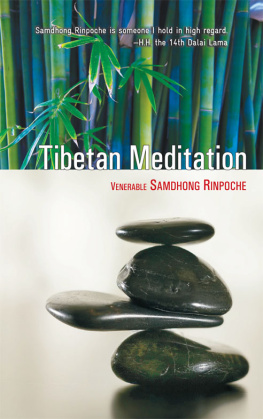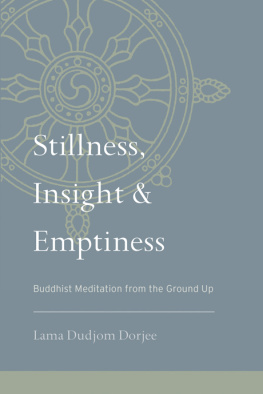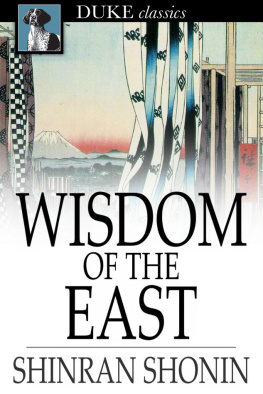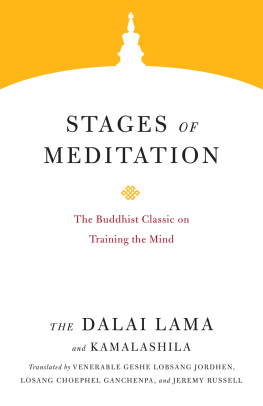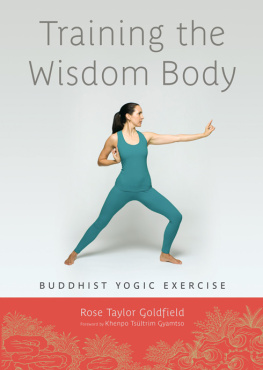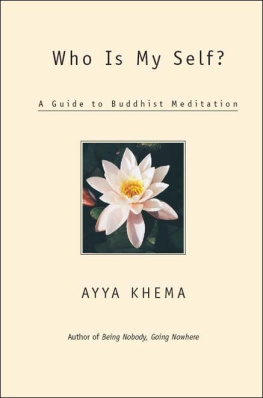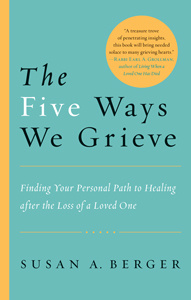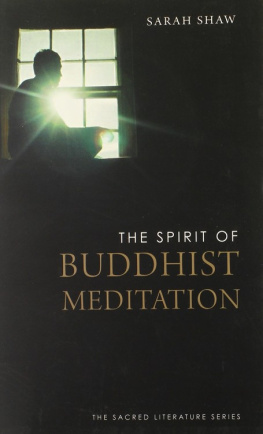A lyrical, generous sharing of a journey to the heart of being Many books speak of wisdom. Joan Halifax is wisdom. Daniel Goleman
Halifax experiences and sees life with remarkable vividness through a fabric of Christianity, anthropology, shamanism, and Buddhism. Her extensive profound experience and suffering illuminate the night skyfrom which hope is renewed and love restored.Laurance S. Rockefeller
Halifax has found her life. This is the travelogue. Seeking it in the small fires, soft eyes, and vast hearts of Asia, Europe, and the Americas, in stories told, and in the explicable adventures of the spirit, she has taken incarnation as woman-heart-shaman.Stephen Levine
Here, the Primordial Wisdom Traditions come to us with majesty and power. [From them] come the guidance and energies we need for the profound renewal of our western world. This is the masterwork of an authentic spirit person.Thomas Berry
The wisdom of cultures that live harmoniously with nature spoken through the heart and mind of a true gnostic intermediary.Ram Dass
Notes on the extraordinary life of anthropologist, ecologist, educator, and author Joan Halifaxa woman who speaks from her heart, a traveler embarked upon a spiritual journey, a healer devoted to her work. Common Boundary
A warm and potent testament to the authors beliefs and to a life lived vigorously for the sake of the spirit.Kirkus Reviews
Halifax, a Zen Buddhist, anthropologist, and author, writes of her experience of psychomental crisis and of her need to reconnect with the earth. She recounts how she found transformation through the virtues of silence, story, and nonduality, among others, with a reverence for ecology, Buddhism, and shamanism playing the largest roles in her transformation. She discovers that generosity is the root perfection out of which grow wholesomeness, patience, energy, natural concentration, and wisdom.Library Journal
ALSO BY JOAN HALIFAX
The Human Encounter with Death
(with Stanislav Grof)
Shamanic Voices :
A Survey of Visionary Narratives
Shaman: The Wounded Healer
A Buddhist Life in America:
Simplicity in the Complex
JOAN HALIFAX Roshi, Ph.D., is a Buddhist teacher, anthropologist, and social activist. She is the abbot and head teacher of the Upaya Zen Center in Santa Fe, New Mexico. Roshi studied for a decade with zen teacher Seung Sahn and was a teacher in the Kwan Um Zen School. She received the Lamp Transmission from Thich Nhat Hanh, and was later given Inka by Bernard Tetsugen Glassman Roshi. A founding teacher of the Zen Peacemaker Order, her work and practice for more than three decades has focused on engaged Buddhism. She travels and lectures extensively in the United States and Europe.
The Fruitful Darkness
A Journey Through Buddhist Practice and Tribal Wisdom

Joan Halifax

Copyright 1993 by Joan Halifax
All rights reserved. No part of this book may be reproduced in any form or by any electronic or mechanical means, including information storage and retrieval systems, without permission in writing from the publisher, except by a reviewer, who may quote brief passages in a review. Scanning, uploading, and electronic distribution of this book or the facilitation of such without the permission of the publisher is prohibited. Please purchase only authorized electronic editions, and do not participate in or encourage electronic piracy of copyrighted materials. Your support of the authors rights is appreciated. Any member of educational institutions wishing to photocopy part or all of the work for classroom use, or anthology, should send inquiries to Grove/Atlantic, Inc., 841 Broadway, New York, NY 10003 or permissions@groveatlantic.com.
First published in 1993 by HarperSanFrancisco,
a division of HarperCollinsPublishers
Published simultaneously in Canada
Printed in the United States of America
Copyright credits begin on .
Library of Congress Cataloging-in-Publication
Halifax, Joan.
The fruitful darkness : a journey through Buddhist practice and
tribal wisdom / Joan Halifax.
p. cm.
Originally published: The fruitful darkness : reconnecting with the body of the earth. San Francisco : Harper Collins, 1993.
eBook ISBN-13: 978-0-8021-9963-8
1. Spiritual life. 2. Spiritual lifeBuddhism. 3. Deep ecologyReligious aspects. 4. Shamanism. 5. Indian philosophy. I. Title.
BL624.H659 2004
204.2dc22
2004042482
ILLUSTRATIONS BY KATHERINE TILLOTSON
Grove Press
an imprint of Grove/Atlantic, Inc.
841 Broadway
New York, NY 10003
Distributed by Publishers Group West
www.groveatlantic.com

Benedicto: May your trails be crooked,
winding, lonesome,
dangerous, leading to the most amazing
view.
May your rivers flow without end,
meandering through pastoral valleys
tinkling with bells,
past temples and castles and poets towers
into a dark primeval forest where tigers
belch and monkeys howl,
through miasmal and mysterious swamps
and down into a desert of red rock,
blue mesas, domes and pinnacles and
grottos of endless stone,
and down again into a deep vast ancient
unknown chasm
where bars of sunlight blaze on profiled
cliffs,
where deer walk across the white sand
beaches,
where storms come and go
as lightning clangs upon the high crags,
where something strange and more beautiful
and more full of wonder than your deepest
dreams
waits for you
beyond the next turning of the canyon
walls.
Edward Abbey
Contents
Acknowledgments
This writing is an expression of gratitude to those men and women who helped me weave my way back into the fabric of Earth. As I write, I want to remember Dolo Ogobara, Don Jos Ros (Matsuwa), Guadalupe de la Cruz Ros, Maria Sabina, Chan Kin Viejo, Jorge Kin, Don Tomas, Grandfather Telles Goodmorning, Grandfather Semu Huaute, Grandfather Wallace Black Elk, Grandmother Grace Spotted Eagle, Grandmother Caroline Tawangyawma, James Kootshongsie, Grandfather Leon Shenandoah, Gray Whiskers, Joe David, John Goodwin (Nytom), Nico Dzib, and other native peoples who have tried patiently to help me see how we live intimately with and within each other.
I also want to remember the Buddhist teachers who showed me the truth of interconnectedness and compassion, including Dae Soen sa Nim, Chakdud Tulku Rinpoche, Richard Baker Roshi, Cao Ngoc Phuong, and my root teacher, Thich Nhat Hanh. And I want to confirm the gifts from the many friends who traveled with me to wild lands of person and place, people who have entered the fruitful darkness with me. This darkness and gold is the heart of the teaching of all these companions and teachers of the way.
I am also writing both to and from the spirit of the wilderness. It used to be that human beings and the wilderness could not be separated. For tens of thousands of years, one has been a context for the other. Today, in North America anyway, wilderness is not the homeland and place of renewal for primal peoples but a place where people of industrial cultures go for recreation. Yes, there is still wilderness in Americaboth big and small, and its survival is our survival.
Next page

